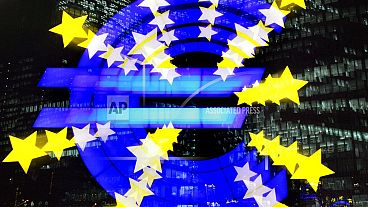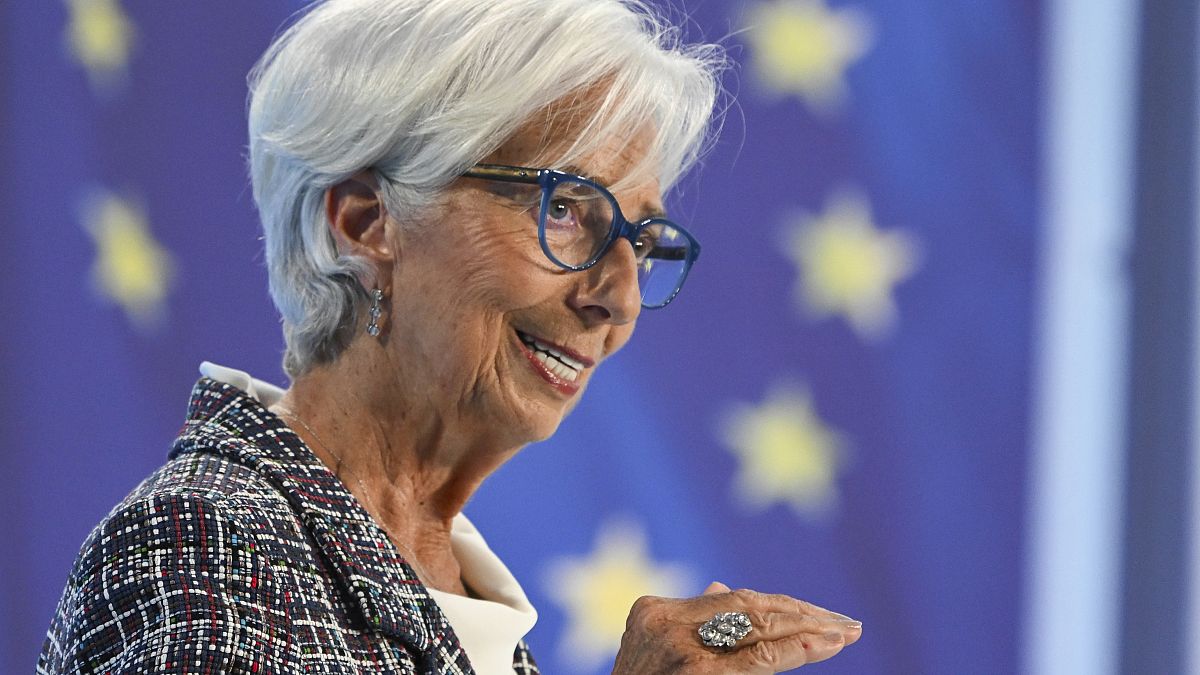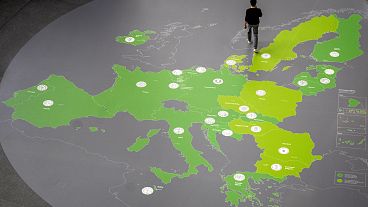The European Central Bank (ECB) has cut its key interest rates as the markets expected, marking its second reduction this year following a move in June.
As anticipated, the ECB reduced its interest rates on Thursday afternoon during its September meeting.
New interest rates have been set at 3.65% for main refinancing operations, 3.90% for the marginal lending facility, and 3.50% for the deposit facility.
The interest rate on the main refinancing operations is the rate banks pay when they borrow money from the ECB for one week, while the rate on the deposit facility is what banks can use to make overnight deposits with the Eurosystem. The rate on the marginal lending facility offers overnight credit to banks from the Eurosystem.
"The Governing Council today decided to lower the deposit facility rate – the rate through which it steers the monetary policy stance – by 25 basis points. Based on the Governing Council’s updated assessment of the inflation outlook, the dynamics of underlying inflation and the strength of monetary policy transmission, it is now appropriate to take another step in moderating the degree of monetary policy restriction," an ECB statement said.
What do economists and market analysts think?
Sylvain Broyer, chief EMEA economist at S&P Global Ratings, shared his thoughts with Euronews Business after the announcement.
"As expected, the ECB has implemented a 25bps rate cut with no additional policy guidance. With wage growth far outpacing productivity and service inflation picking up again, the governing council has no reason to accelerate the pace of cutting rates or committing to further rate cuts at this stage.
“The upcoming 35bps reduction in the repo rate is unlikely to have a significant impact. While it may serve as a ceiling for money market rates in the long term, banks currently have little incentive to tap the markets, as their liquidity needs are being fully met by the ECB,” Broyer said.
Meanwhile, Grzegorz Drozdz, market analyst at Invest Conotoxia, also confirmed it was what had been expected.
"The impact of this decision on the market is already visible, as reflected in increased volatility of the EUR/USD pair and an attempt to break through the 1.10 level. This confirms the continuation of the interest rate cut cycle. Why did the ECB take this decision? Preliminary data on inflation in the euro area showed that it stood at 2.2 percent, almost reaching the target, while the economy seemed to have come to a standstill. This state of affairs did not leave the ECB with too many options.
"Although the ECB is acting faster than the Fed in lowering interest rates, more cuts are expected in the US. Experts forecast that the ECB's main interest rate will fall to 3.5 percent by the end of 2024, while the Fed could cut by 125 basis points, to between 4.0 and 4.25 percent. Although Invest.Conotoxia.com analysts believe that these prognosis may be exaggerated, a significant difference in the pace of interest rate cuts could lead to a further rise in the EUR/USD pair," Drozdz added.
The monetary policy update follows the ECB's decision in June to reduce interest rates by 25 basis points, a move that had also been largely anticipated by market participants.
Eurozone consumer price growth eases
The latest ECB decision comes as inflation has eased. Eurozone consumer price growth slowed to 2.2% in August, according to flash estimates, marking the slowest increase since July 2021.
However, core inflation, as in the US, remains persistent at 2.8%. The sharp decline in annual inflation can also be attributed in part to a higher base last year.
Eurostat highlighted that "the slowdown was due to a sharp fall in energy costs as base effects came into play in August".
While inflation is cooling, growth indicators have remained concerning.
The eurozone’s gross domestic product (GDP) grew by just 0.2% in the second quarter of 2024, a downward revision from the earlier estimate of 0.3%. Across the bloc, performance varied significantly, with Germany, the region's largest economy, contracting by 0.1%.















